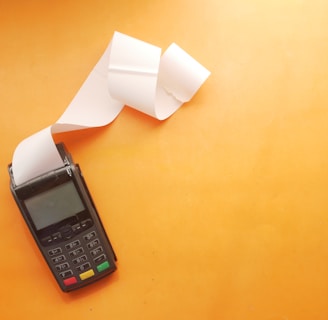Do I Need To Send Invoices To My Clients?
Not sure if you need to send invoices to clients? This simple guide explains invoices vs receipts and when invoicing is best practice.
BOOKKEEPING


First off, if you’re already making sales in your business, a huge congratulations to you! If you haven’t reached that point yet, no worries—this article is still super helpful. It’ll guide you to set things up right from the start!
So, you’re in the process of selling products or services, or maybe you’re gearing up to launch, and you’re wondering: Should I be sending invoices to my clients?
Let’s break it down!
What’s the Difference Between an Invoice and a Receipt?
An invoice is a document that you create when you provide a service or deliver goods to a customer. Think of it as a friendly request for payment. Invoices can have different payment terms—some might be due right away, while others could give your clients a bit more time, like 30 days. The payment terms can vary depending on your arrangement with each client, so feel free to adjust them!
On the flip side, a receipt is like a warm hug saying, "Thank you for your payment!" It’s proof that a transaction has already taken place. You get receipts when you buy something at a store or receive a confirmation email after an online purchase.
Do You Need to Send Invoices or Receipts to Your Clients?
If both you and your client are VAT registered, then yes, you've got to provide them with an invoice. Be sure to include specific details on those VAT invoices.
In other cases, while you’re not legally required to send invoices, it’s definitely a good practice, especially if you’re selling things on credit terms. When you send an invoice, your clients can easily keep track of payment due dates, which can help ensure that you get paid on time. Plus, including your bank details can speed up the payment process!
It’s also a great idea to add a clear description of the goods or services you supplied on your invoices. This can prevent any confusion and keep everything transparent for your clients.
As for receipts, you’re not obligated to provide them. A client’s bank statement can serve as proof of their purchase. However, if you’re running an online shop, most payment providers automatically generate and email a receipt to your clients. This not only keeps things clear but also saves you some time!






